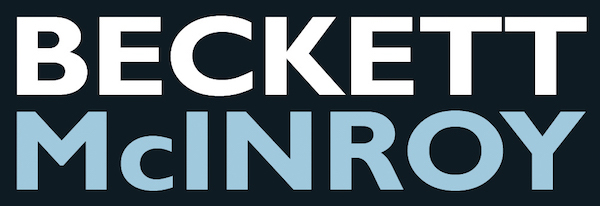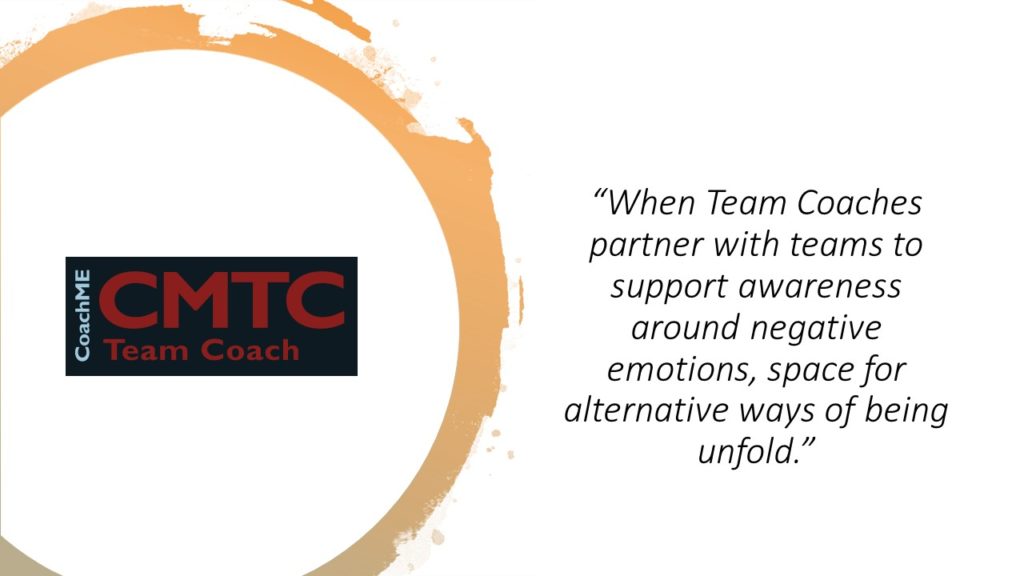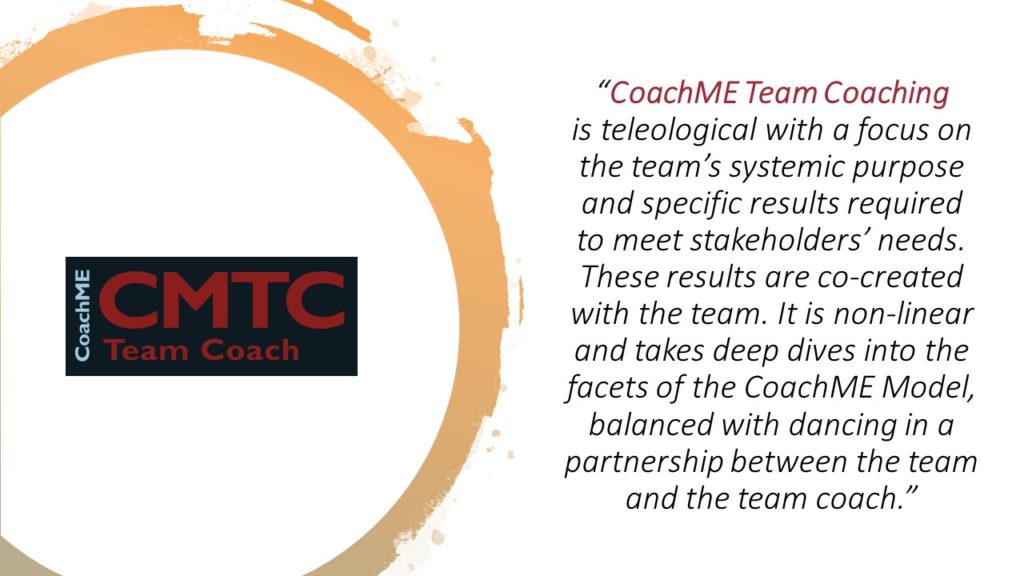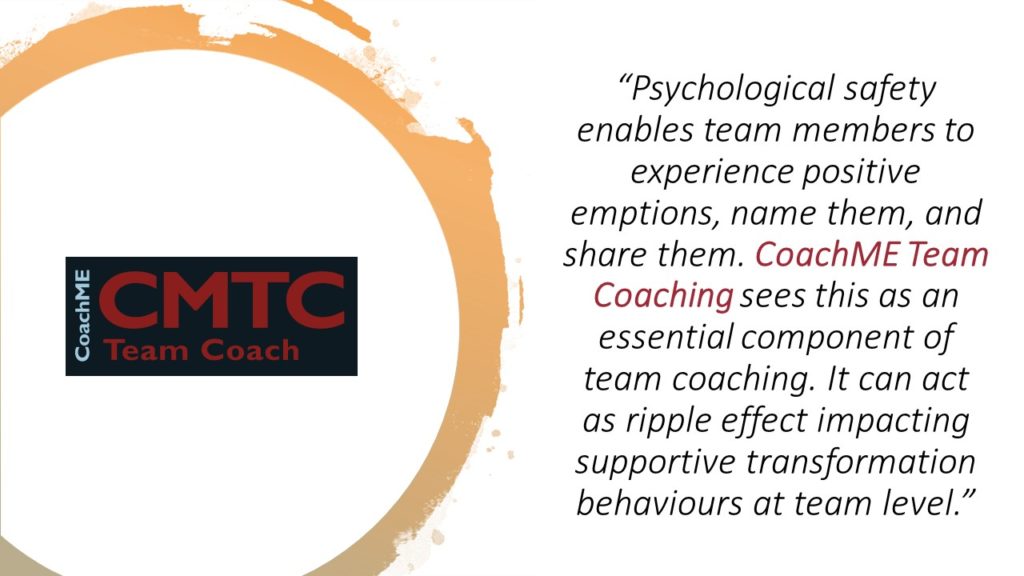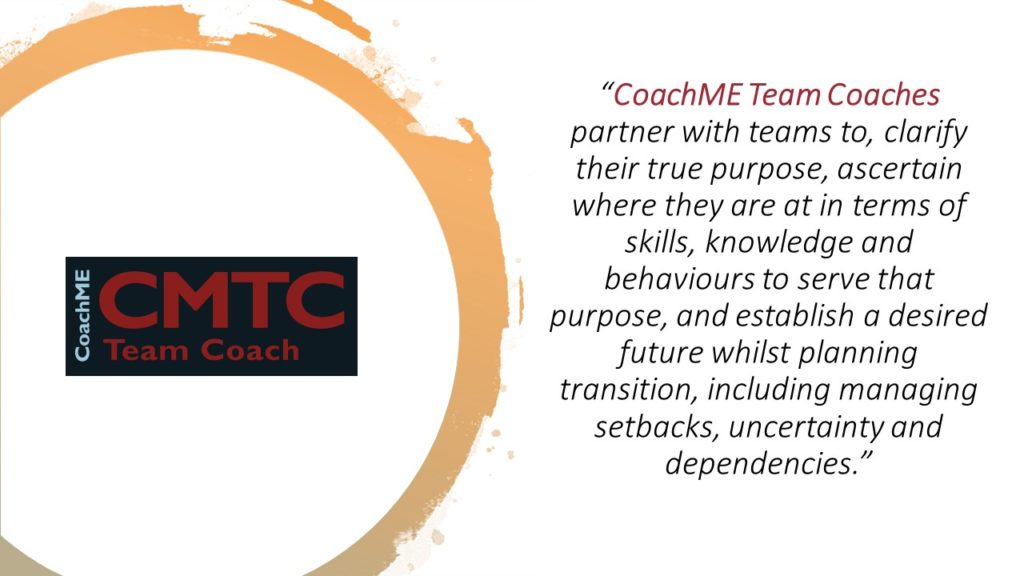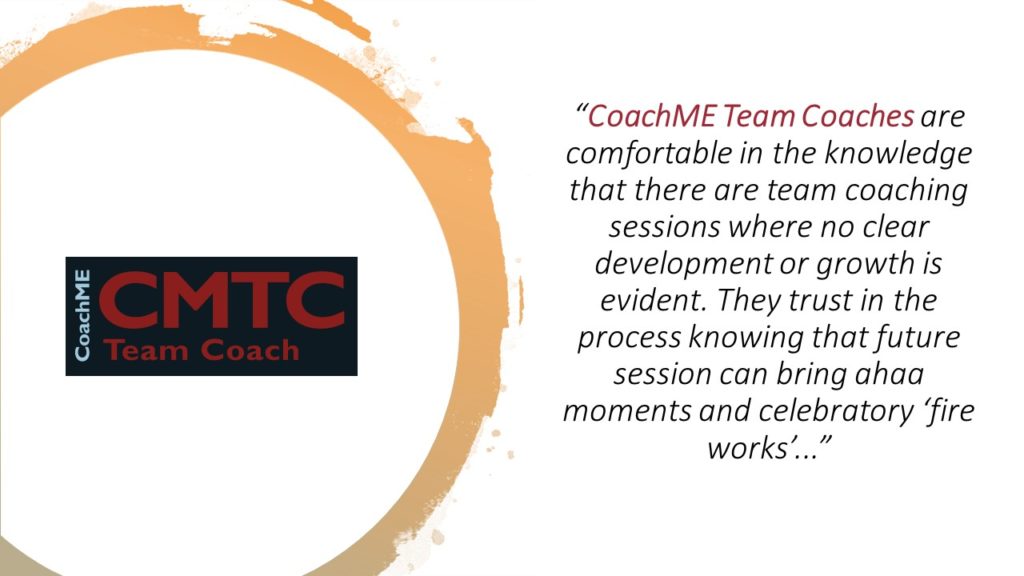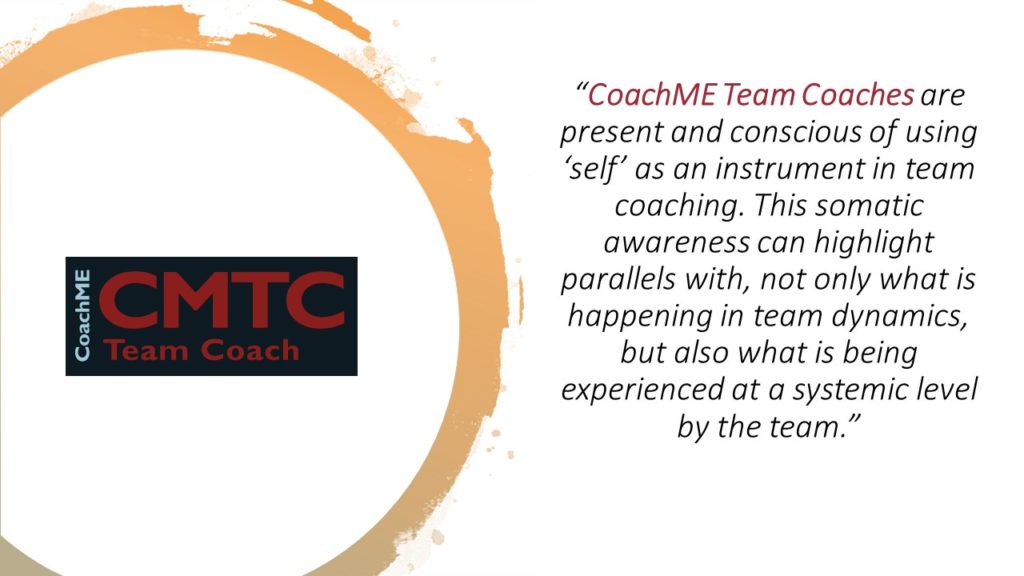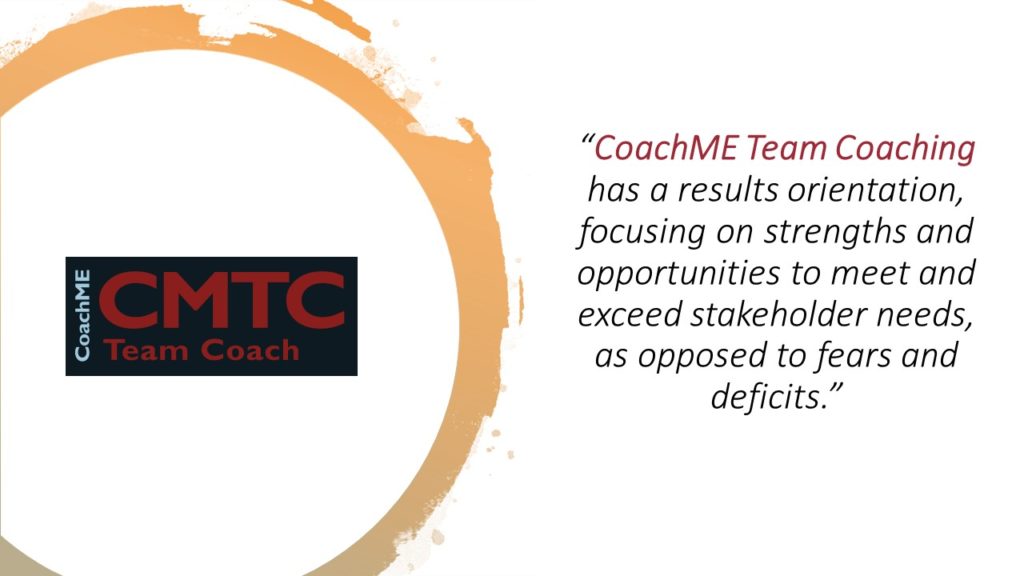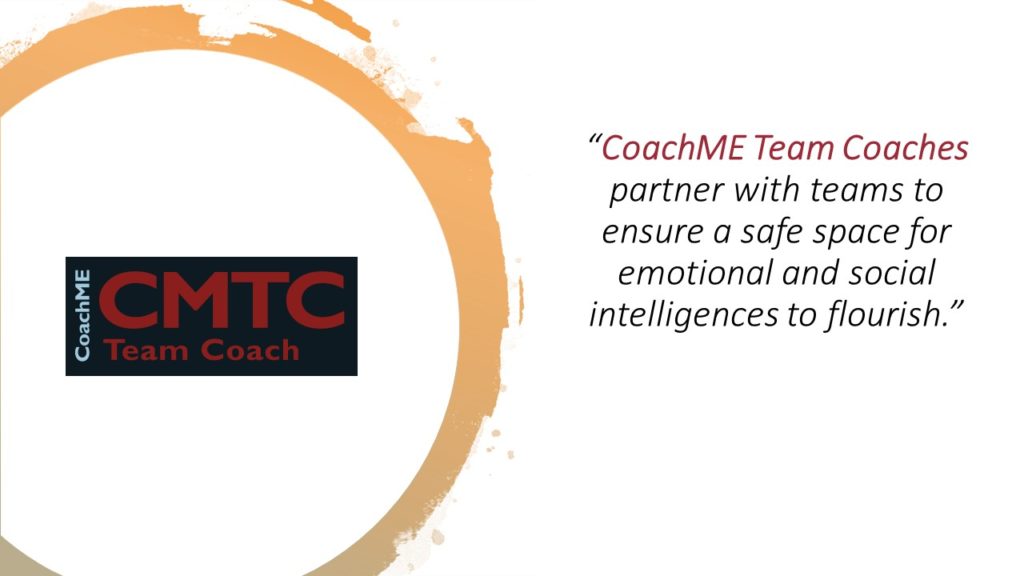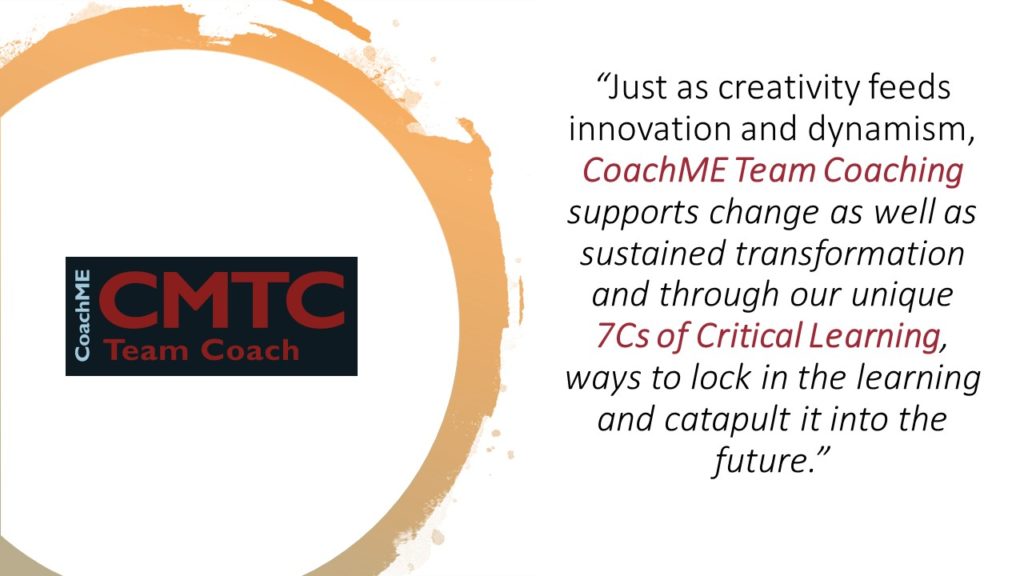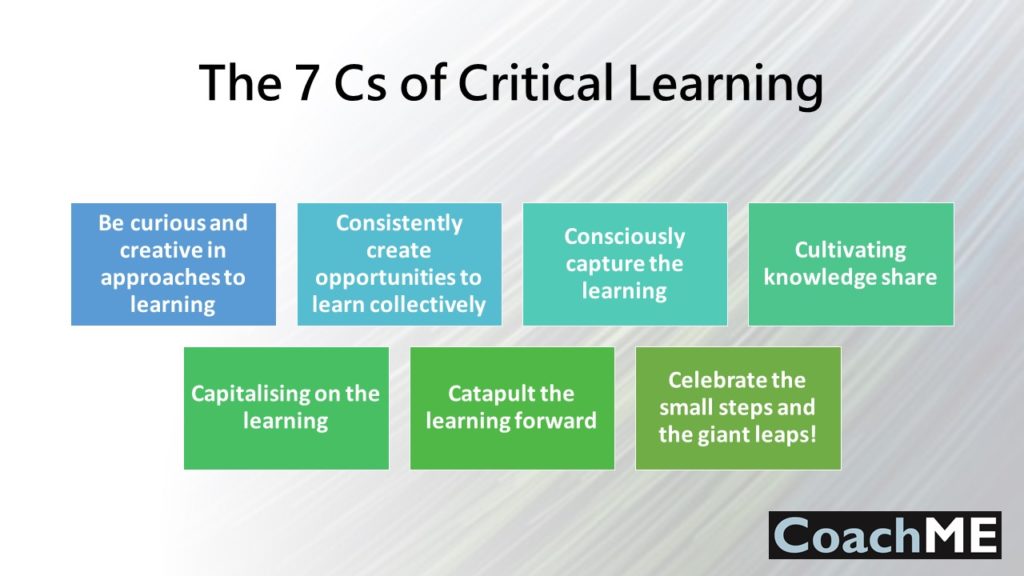The CoachME Model© for and Board Team Coaching
As the CoachME Model can be used one-on-one and with groups, it is also effective with groups, teams and board. This non-linear, non-cyclical model enables teams to deepen their understanding of the needs of the wider system, then plan and implement actions to fit those needs.
Here we explore the rationale and philosophy of the model in relation to team coaching.
With Results in the centre, at the heart of the model, CoachME Team Coaching is firm in the belief that we partner with the team, and it’s stakeholders (internal and external) to co-create the desired results. The way we do this is by ensuring we are listening to the needs of the many systems at play, We call this approach ‘working with nested systems’, that is systems within systems. The data comes from interviews with the Board, the CEO, L&D, OD professionals, the Executive Sponsor, and from our unique extensively researched TAP360 ‘Team Advance Profile’ where we support teams in hearing all the necessary voices, allowing them to ‘tap into the full high performing potential of the team’.
Our Team and Board Coaching Process
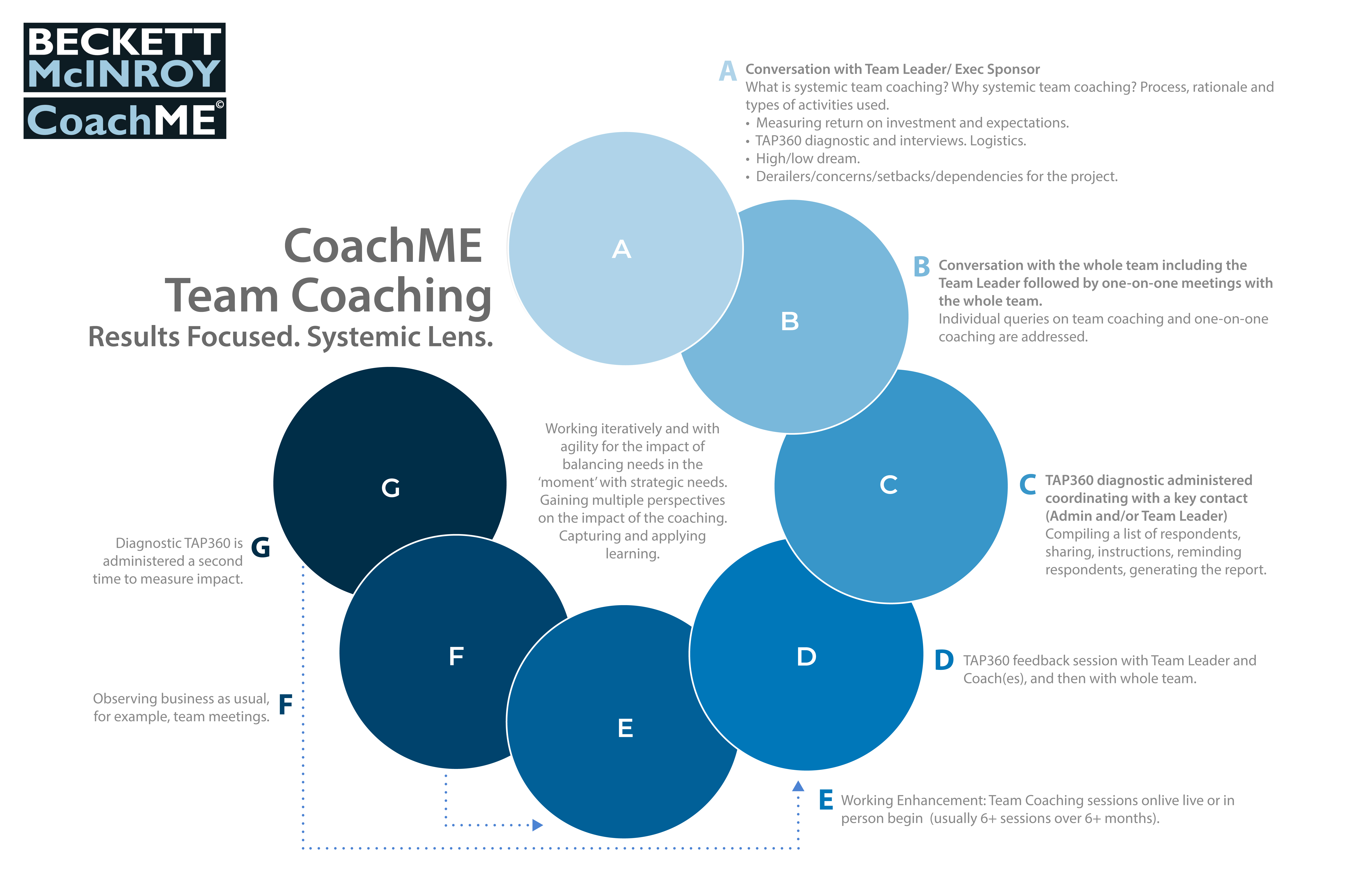
By working from data, we ensure that deep listening, generative thinking, appreciative enquiry, and powerful questioning are used to plan future action and shared accountability. All desired results are in service of the wider system’s needs. This is why we need to bring the stakeholder voices into the ‘room’. We work with the team around the facets of the model, drawing upon strengths and identifying development gaps (Skills, Behaviours, Knowledge, Planning, Action).
We know it is fundamental to facilitate the team connecting and aligning around a clear team purpose. This purpose needs to be articulated and understood whilst focusing from the outside in, addressing the changing needs of the systems.
Questions that are pertinent include:
What is our true purpose as a team?
What can we achieve as a team that we can not achieve individually?
What ways can we ensure shared objectives and mutual accountability?
Who do we need to be as a team to serve our clients most effectively and efficiently?
What shift and transition do we need to get there together?
CoachME Team Coaching addresses dependencies and setbacks, and advocates working iteratively in transition planning. Results and reflection enable us to aim for sustained impact – transformation, not just change.
The model is mapped to the International Coach Federation (ICF), Association for Coaching International (AC)and European Mentoring and Coaching Council (EMCC) Core Coaching Competencies and we keeping their Codes of Ethics at heart.
Here (CoachME Team Coaching Competency Framework) you can find a detailed compilation of the CoachME Team Coaching Competencies that work as a benchmark for team coaches. They are addressed thoroughly in all our team coach training.
The CoachME Model is intentionally non-linear and non-cyclical. It is a fluid yet results-oriented process. The rationale? From extensive analysis upon eight key coaching models, the latest theories of coaching impact and RoI, as well as feedback from teams, practice of different models and theories, as well as empirical research critiquing and assessing systematically the value of the CoachME Model, it was found that coaching does not always follow the linear or cyclical elements of clarifying the issues, getting the evidence, planning the action, acting and reviewing. In fact, what happens in reality is that a session may begin with reflection on learning and action from the previous session, or a team may ‘stay’ a whole session in one place such as analysing their behaviour, or they may ‘dance in the moment’ (ICF, 2011) between different facets.
A team may be working upon a project establishing milestones, therefore, they are working in Transition Planning, yet they bounce in and out of Results. These are Results for both the actual coaching session, as well as long-term Results, and even big juicy Results aligned to values and life purpose! They may also dip into Reflection about what has worked previously, what achievement will look and feel like, what they will experience when they ‘get there’, what their colleagues or organisation (family or community) will experience, how important these Results are, and so forth. They may choose to delve into linking certain elements of Transition Planning with growth in Knowledge or Skills, to consider what they need to ‘deepen’ in terms of learning and understanding, to close gaps that will help ‘forward the action’. The session may end by circling back round to ascertain if the Results for that actual session were achieved and accountability measured for any Action than has been highlighted.
The model fits with personal life, career, executive, organisational, team and systems coaching. CoachME Team Coaches work with compassion, vulnerability and unchartered territory by utilizing ‘fierce courage’ to evoke transformation. This draws upon self-awareness and self-management for both the Coach and the team. The use of ‘self as instrument’ is an important skill for CoachME Team Coaches where we acknowledge, name, explore and share what we are noticing in ourselves, as this is often a parallel with what is happening both in the team, and also in the wider system.
CoachME supports eclectic dives into the different facets, helps teams to explore ‘where they are at’ and to ‘stay’ with whatever comes up. The model also helps the Coach with the core competencies of non-attachment to both the agenda and the outcomes. Flow occurs without the pressure of moving to action and accountability in every session.
CoachME Coaches believe in the CoachME process and also in the teams they are working in partnership with. They accept them ‘as is’ whilst exploring with them the horizon of ‘to be’. They are open, honest and skilled in tackling ‘difficult conversations’. They always display trust and adhere to ethical codes of conduct by respecting contracts and confidentiality. In an organisational context contracting can be two, three or more ways when necessary due to complex dynamics and the model is shared with all relevant stakeholders.
Skills, Knowledge and Behaviour
CoachME enables teams to identify and break down what skills, knowledge and behaviours (or attitude) they have in relation to the results sought on micro and macro level. This helps as a reality check to identify any gaps. This is, ideally, done through evidence based practice such as 360° feed-forward (or 720°). The CoachME team tend to use psychometrics from the onset, with appropriate norm groups, which is important.
To reduce toxic behaviours in whole systems, conflict needs to be faced head-on. By identifying and naming the level of conflict for the perspective of individuals, of teams and of the energy in different situations, teams can destruct conflict and learn how to work with such issues as blame, criticism, defensiveness, stone-walling and contempt (Gotman, 2013). CoachME embraces conflict as a positive force for change, and part of transition, rather than something to be resolved or managed.
With a clear intention of the impact you want, any interaction, with a family member, with colleagues, on-line can enable you to achieve your full purpose and productivity. This is especially important when training, facilitating meetings and leading team coaching. Pre-framing, reframing and de-framing are played with purposeful interactions.
Empowerment is at the heart of CoachME Team Coaching which enables the team to generating and own solutions, taking responsibility. For teams, this is about collectively creating great ideas. Cooperation and collaboration, and their differences can be explored to enable teams to work in synergy with the whole system and for members to creating win-win solutions, adding to the thoughts of others, for the sake of the transformation needed. This is a mindset.
CoachME Team Coaches are curious and non-judgmental as they hear the team’s values and beliefs, as well as accepting the religious, cultural and other nuances that have impacted upon them.
The behaviour facet is also about the designed alliance, partnership, way of working together where the team coach and the team work in relationship with each other with trust, suitable challenges, ‘calling forth’ the team’s brilliance, and ensuring deep listening to understand takes place.
Transition Planning
Transition Planning is about ‘creative solutions’, co-creating and ‘establishing goals with measurable outcomes’ and being aware of the ‘different stakeholders’ parts in systems.
Transition Planning is identified in research as of paramount importance in ensuring that change is long-term and sustained as opposed to a ‘quick fix’. This element of the CoachME model focuses on who or what can help the team to achieve their desired results in their way and their timescale. This is a way of ensuring that the targets or results are Specific, Measurable, Achievable, Articulated, Resonant, Reasonable, Time bound, Thrilling, Enjoyed and Evaluative, Reflected upon and Revisited (SMARTER).
Transition Planning brings in accountability measures and who or what can support the team around accountability. It also ignites exploration of connection and identification of what Results will look and feel like.
CoachME Team Coaching addresses both the Coach and the team’s ‘staying fully present’, being ‘flexible’ and wanting the best outcomes for the team and its stakeholders, and even wider afield! Transition Planning raises awareness and supports ‘generation of options’ as well as different perspectives, reminding the team that they are not alone.
Drawing on who and what can help results happen, also means that others are being empowered and developed. This is also supported by a growth mindset, towards (as opposed to away from) mentality, and a learning organisation philosophy.
Transition Planning is also about designing action, realizing potential set-backs and planning ways to tackle them to get back on track as smoothly and quickly as possible. Measures of desired Results are clear, as are the optimal situations, way of being, critical incidents and significant others who can support Results in various ways, including acting as change agents and brand ambassadors in organisations. This can reduce silos in organisations as well as encouraging internal networking for optimizing organisational Results.
Transition Planning supports change and enables transformation. It helps us work with dependencies and manage setbacks resiliently, whilst celebrating the small steps and ‘wow’ achievements along the way.
Results
With Results at its centre, which can be dipped into when required, this is a goal oriented model that, through reflection and other facets, also addresses ‘deepening the learning’. This helps both Coach and team to be fully present and flexible, to ‘dance in the moment’, sometimes flowing in and out, or consciously jumping right into Results throughout the session. The facets of the CoachME model drawn together are designed to collectively encourage the team to not only think outside their own frame of reference and mindsets, but to create an emotional shift.
Action
Action includes ‘doing’ and the CoachME model encourages team to explore ‘in action’ who they are being. Action can also be enquiries to broaden the scope of learning as well as exploration of the pace and commitment and to work on who they are ‘being’. Acting, role-play and modelling these new Skills and Behaviours through conscious, intentions and responsibility can have a significant impact on the team’s way of doing things.
Reflection
Where patterns emerge and things ‘show up’ in different parts of a team’s life (such as their family and community systems), reflection is about exploring and recognising (through tools, techniques and competency check-ins) patterns which are emerging. It is also about seeing things from a meta-view, the bigger picture. Research also shows that it is hard to break old hardwired habits. Hence transformation – the creation of create new hardwiring, letting the old atrophy.
Celebration
CoachME advocates revelling in successes and celebrating, large leaps or small steps, at whatever pace is desired. It incorporates reflective time to ‘stay’ in celebration and acknowledgement of results. Why is it important to celebrate your successes?
-
Celebrating enhances an encouraging atmosphere, which is a great motivator.
-
Celebration helps anchor acceptance of achievements and positivity.
-
By celebrating you also acknowledge and evaluate what you have accomplished.
-
Celebration provides an opportunity to thank the people that have been supportive.
System
By layering in relational systems level work, systemic coaching can bring a framework and approach for exploring, clarifying and resolving different types of leadership, team and organisational issues. It is clearly related to practical systemic thinking and being able to ‘step into’ the shoes of various stakeholders, acknowledging their place, importance and needs within the whole system and ways they can be supported.
What do your various stakeholders need you to be coached on today?
What impact will this action have on your children’s children?
Field
This is about working physically and metaphorically in the ‘space’ created for coaching and its positive transformational impact working with teams, both individual and teams, who are naturally creative, resourceful and whole. It is also about working within the field of coaching, as an expert in coaching, whilst also being knowledgeable of interdisciplinary fields such as leadership development, positive psychology, gestalt, employee engagement, strategy, neuroscience. And, of course it respects and taps into the knowledge in the field the team is working with (such as not-for-profit, financial services, education etc.).
Conclusion
This model supports team level results-focused work through coaching conversations, due to its flexibility. This is achieved through powerful questioning, deep listening, clean language, fierce courage on behalf of the partnership, ‘geography’ and kinesthetics, future state visualisation and connection, and most importantly, equal power and trust, both in the process and the coaching relationship.
